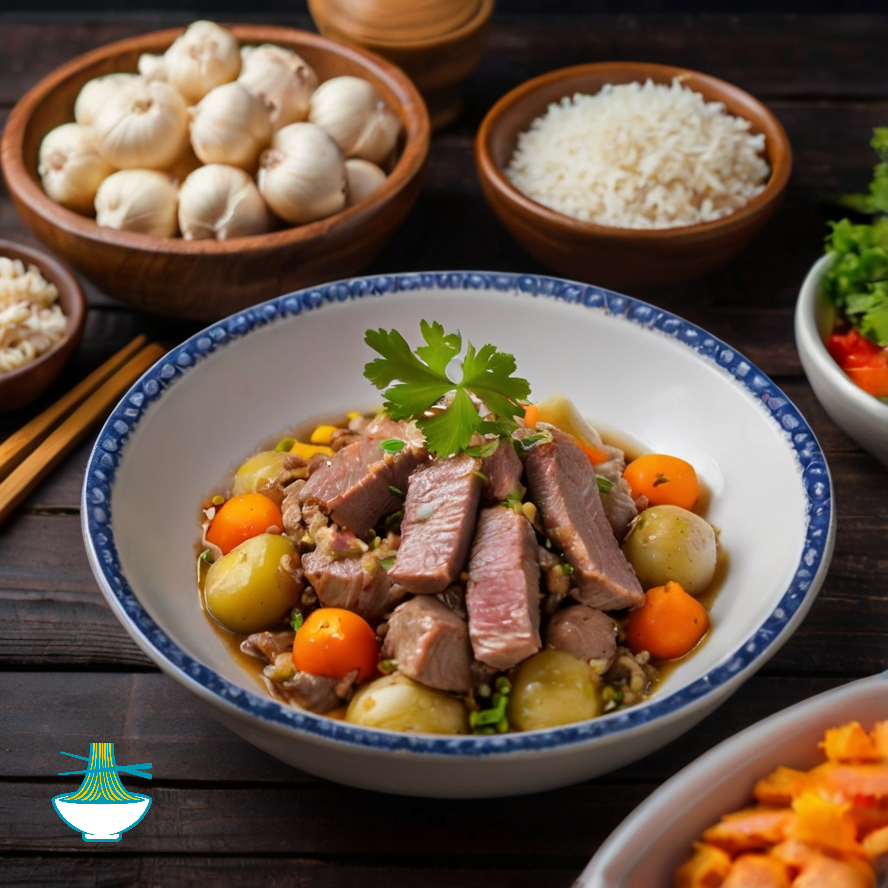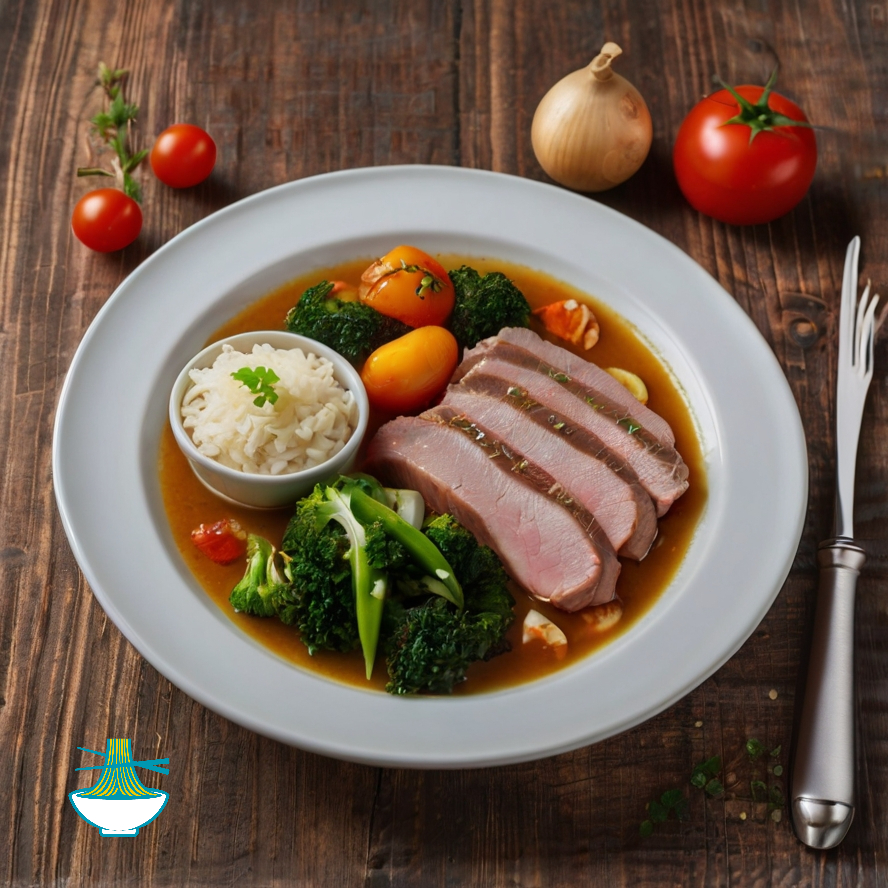Eezhi, a traditional dish, features boiled meat served with veggies or grains. Originating from ancient culinary practices, it reflects a cultural blend of flavors and techniques passed down through generations.
Ingredients:
- 500g of meat (chicken, beef, or lamb)
- Salt to taste
- Vegetables (carrots, potatoes, onions, etc.)
- Grains (rice, quinoa, or couscous)
Method:
1. Rinse the meat under cold water and place it in a large pot. Cover with water and add a pinch of salt.
2. Bring the water to a boil over high heat, then reduce to a simmer. Skim off any foam that rises to the surface.
3. Allow the meat to simmer for 1-2 hours, or until tender. Add more water if necessary to keep the meat submerged.
4. While the meat is cooking, prepare your vegetables and grains. Peel and chop the vegetables into bite-sized pieces.
5. Once the meat is tender, add the vegetables to the pot. Cook for an additional 15-20 minutes, or until the vegetables are soft.
6. In a separate pot, cook the grains according to package instructions.
7. Serve the boiled meat with the cooked vegetables and grains on the side. Enjoy your hearty and nutritious Eezhi dish!
Nutrition Value:
1. Meat (chicken, beef, or lamb):
- Calories: Approximately 100-250 calories per 100g depending on the type of meat and cut.
- Carbohydrates: Negligible.
- Protein: Rich source, approximately 20-25g per 100g.
- Fat: Varies depending on the cut, with lean cuts having lower fat content.
- Sodium: Natural levels vary, minimal if unseasoned.
- Cholesterol: Varies, typically around 70-100mg per 100g.
- Vitamins: Rich in B vitamins (B12, niacin, B6).
- Minerals: Good source of iron, zinc, and selenium.
- Nutritional Benefit: Provides essential amino acids for muscle repair and growth, iron for oxygen transport, and other micronutrients crucial for overall health.
2. Salt:
- Calories: Negligible.
- Carbohydrates: None.
- Protein: None.
- Fat: None.
- Sodium: High, approximately 2300mg per teaspoon.
- Cholesterol: None.
- Vitamins: None.
- Minerals: Primarily sodium.
- Nutritional Benefit: Adds flavor, aids in preservation, and is essential for electrolyte balance in the body, but excessive intake can lead to health issues like high blood pressure.
3. Vegetables (carrots, potatoes, onions, etc.):
- Calories: Varies, typically low, around 25-50 calories per 100g.
- Carbohydrates: Moderate, around 5-15g per 100g.
- Protein: Low, around 1-2g per 100g.
- Fat: Negligible.
- Sodium: Low, around 5-10mg per 100g.
- Cholesterol: None.
- Vitamins: Rich source of vitamins A, C, and K, as well as various B vitamins.
- Minerals: Good source of potassium, magnesium, and other minerals.
- Nutritional Benefit: Provides fiber for digestion, antioxidants for health, and a variety of vitamins and minerals crucial for bodily functions.
4. Grains (rice, quinoa, or couscous):
- Calories: Varies, typically around 100-200 calories per 100g depending on the type of grain and preparation.
- Carbohydrates: High, primarily from starch, ranging from 20-40g per 100g.
- Protein: Moderate, around 4-10g per 100g depending on the type of grain.
- Fat: Low, typically less than 2g per 100g.
- Sodium: Minimal if unseasoned.
- Cholesterol: None.
- Vitamins: Varies depending on the grain, but often a good source of B vitamins.
- Minerals: Rich in minerals like iron, magnesium, and zinc.
- Nutritional Benefit: Provides energy from carbohydrates, essential amino acids from protein, and a range of vitamins and minerals necessary for overall health.


Comments